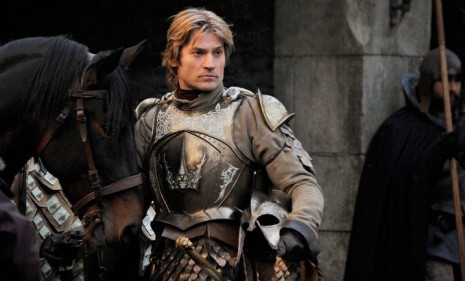'Game of Thrones': Has HBO done fantasy right?
The channel's adaption of George R.R. Martin's book is pinned as a cross between "Lord of the Rings" and "The Sopranos." Will anyone but fanboys care?

A free daily email with the biggest news stories of the day – and the best features from TheWeek.com
You are now subscribed
Your newsletter sign-up was successful
On Sunday, HBO debuts Game of Thrones, a sprawling adaptation of George R.R. Martin's epic fantasy novel from 1996. The 10-episode miniseries centers on sex, violence and political struggles in a slightly magical world that "mixes medieval Europe" with "elements of chivalric legend and Norse saga," according to the Associated Press. HBO, not known for its fantasy programming, spared few expenses with Thrones, mounting an ambitious and expensive production that it hopes will reach an untapped market. Will its gamble pay off? (Watch the trailer for Game of Thrones.)
Martin fans will be wowed: "Fantasy is a challenging genre for television," says Nick Baumann at The Atlantic. The biggest hurdle for producers is to construct sets that faithfully recreate these vast, often supernatural worlds. But as soon as Game of Thrones begins, it's apparent that HBO is more than capable of pulling it off. The "much-hyped opening sequence," which flits around the different settings that make up the show's universe, is a tour de force. And while not every scene can match the opening's vividness, HBO has truly fulfilled the author's vision.
"Game of Thrones: Will non-fanboys care that 'winter is coming?'
The Week
Escape your echo chamber. Get the facts behind the news, plus analysis from multiple perspectives.

Sign up for The Week's Free Newsletters
From our morning news briefing to a weekly Good News Newsletter, get the best of The Week delivered directly to your inbox.
From our morning news briefing to a weekly Good News Newsletter, get the best of The Week delivered directly to your inbox.
General audiences will like it, too: The big question, says Ken Tucker at Entertainment Weekly, is whether viewers who haven't read Martin's books will want to "follow multiple story lines, each packed with numerous important characters, set in a vast imaginary realm." In spite of all the complexity, "I think they will." The show's impressive cast — Sean Bean, Peter Dinklage, and Lena Headey are all excellent — will help draw non-fans into Martin's world. And even though Game of Thrones is heavy with exposition and dialogue, the show "maintains a narrative pace that keeps you engaged even during the talky parts."
No, it's one big mess: Game of Thrones is so hard to follow that "it ought to come with a warning like, 'If you can’t count cards, please return to reruns of Sex and the City,'' says Ginia Bellafante at The New York Times. HBO has a history of programming that viewers have to pay close attention to (The Wire, for instance), but such programs served a larger purpose: "Examining the way that institutions are made and how they are upheld or fall apart." This show, on the other hand, "serves up a lot of confusion in the name of no larger or really relevant idea" beyond "power is hot."
"Game of Thrones begins Sunday on HBO"
A free daily email with the biggest news stories of the day – and the best features from TheWeek.com
-
 The Olympic timekeepers keeping the Games on track
The Olympic timekeepers keeping the Games on trackUnder the Radar Swiss watchmaking giant Omega has been at the finish line of every Olympic Games for nearly 100 years
-
 Will increasing tensions with Iran boil over into war?
Will increasing tensions with Iran boil over into war?Today’s Big Question President Donald Trump has recently been threatening the country
-
 Corruption: The spy sheikh and the president
Corruption: The spy sheikh and the presidentFeature Trump is at the center of another scandal